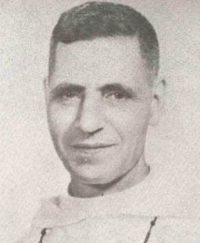Corregidor and Bataan of historic memories were taken with relative ease. History did not repeat itself. The small but epic peninsula was cleaned of Japanese by an American division which two weeks earlier had landed in Subic. Troops also landed on Corregidor from the air and from the sea in a simultaneous landing screened by squadron fire. The air drop operation was very difficult as the small island did not have sufficient landing areas. Never had there been such a big casualty in so small an operation. The invaders had to finish off the seven thousand defenders, with only some twenty prisoners taken.
What end did the Japanese High Command want to achieve with their plan of suicidal extermination of the troops, either by their own hands or by the hands of the invaders? If a handful of valiant soldiers would take after Leonidas and his three hundred Spartans, that was understandable. But that hundreds of thousands or that the whole Army would be sacrificed for a national objective, only fanaticism or desperation could explain. What would the military leaders achieve through the extinction of almost the whole masculine population and great part of the feminine population of the country? To kill a number of thousand enemies at the expense of millions of their own soldiers, sacrificed to the Imperial idol! In many occasions, groups of soldiers wanted to surrender, but their officer prevented them at gunpoint. The few who had been captured, yielded to force or against their will or their officers were powerless to intervene.
The civilians who escaped the murderous claws of the Japanese were able to save themselves either fortuitously or through the intervention of some good-hearted Japanese — we have to do justice to some of them who saved others at the risk of their own lives — and always by a providential act of the divine mercy which knows how to counteract the most notorious plans. Both the annihilation of the civilian population and the mass suicide of the Japanese army and people had been premeditatedly planned by order of the Imperial government which wanted to drown national defeat and humiliation in blood. After my disaster, the deluge, but a deluge in which even the saving arc of civilization would perish — that is, if the arc would be capable of saving anything. Such was the plan of these Oriental fanatics. War is hell. Men are transformed into demons converting the earth into an infernal fire.
What faith can we have in science, in civilization, in humanitarianism? Or in other deities of modern paganism which have despised the true God in its search for its messiah among self-manufactured idols? Someone started believing that all is futile, all: men, ideas, culture… even religion. Could it not be pride, concupiscence, effeminacy that had unleashed this deluge of passions, afflictions and punishment over prevaricating humanity? Would that the Lord leave the triumphal arc of salvation soon, and that he would not turn away from men!
In all the battlefronts, the bloody scenes witnessed in Manila were reproduced. The Army of Yamashita was divided into five sectors, each one isolated from the others, thrusting back and forth with impotent strokes like the dying quivers of a severed reptile’s tail. The main body of the Japanese Army was bottled up in the mountains of the north by the American divisions which were operating from the Balete Pass and the P. Villaverde road up to Aringay, passing through the hills between Rosario and Baguio. This body was separated from the rest of the Japanese troops when the American 6th and 25th divisions cut through the north of Nueva Ecija until they reached the opposite coast near Baler. There was no other way left for the invincible Army of Yamashita but a desperate annihilation, shielding themselves behind the mountains and the populace. From cave to cave, they were hunted and exterminated like dangerous animals. Many were dying of hunger, sickness or misery. Others were found emaciated, naked and so weak they could not even lift their arms.
